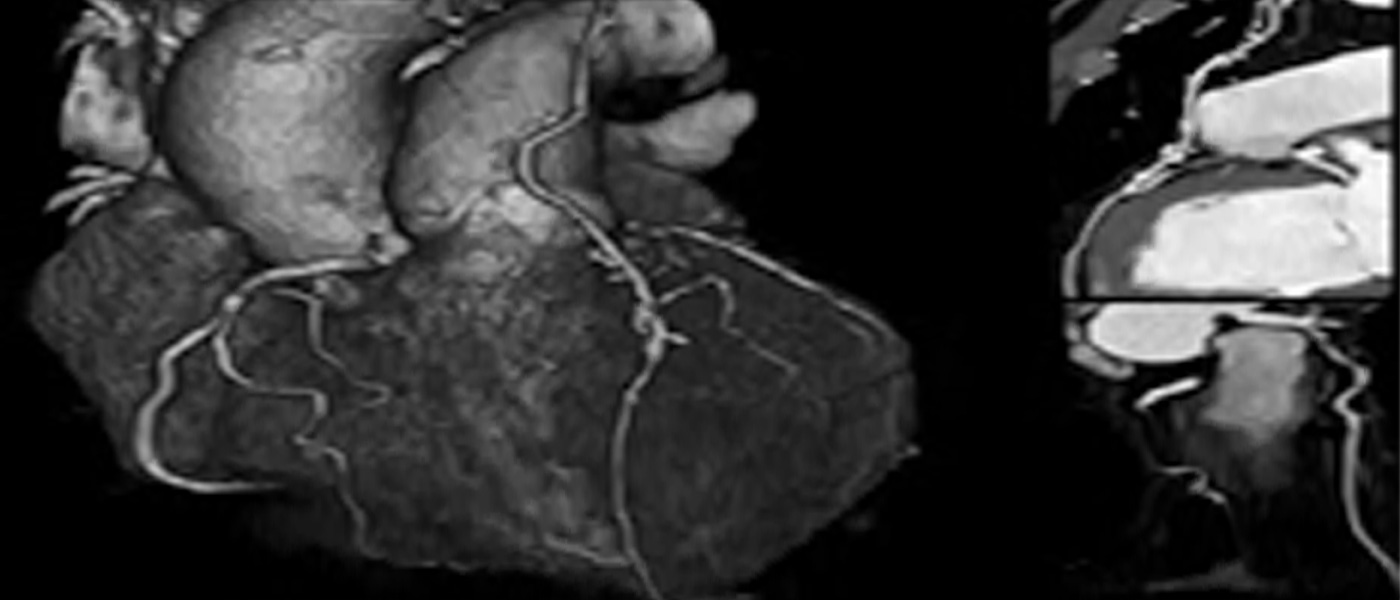Computed Tomography of the heart
Dear Readers, Dear Patients,
On the following Page we would like to inform you about the Computed Tomography of the Heart (Cardiac CT) at our Institution.
Computed Tomography of the Heart is a Radiological Examination Process. In CT-Scanner circles System from an X-Ray Tube or two X-Ray Tubes and a Detector System with 16 to 128 lines spiraling Around the Upper Body and there are Tomographic Images of the Heart.
- Calcification of the Coronary Arteries (Calcium Scoring)
- Narrowing of the Coronary Arteries (Coronary CT Angiography)
- Bypass and Intervention Control
What should I bring?
To perform a Computed Tomography of the Heart you should bring current Laboratory Values that give information about your Kidney Function:
- Creatinine
- Glomerular Filtration Rate (GFR)
These Values should not be older than 7 days. The findings of preliminary Studies (eg, stress ECG, Cardiac Catheterization or surgical Reports) are very helpful in the Evaluation and assessment of a Computed Tomography of the Heart. We therefore ask you to bring us these findings in Copy.
Examination Procedure
In most Cases, a Venous Vascular Access is set when the Contrast Agent is to be injected in the Investigation. In Addition, Electrodes for the Discharge of an Electrocardiogram (ECG) are stuck to the Chest. The ECG is necessary to create the Computed Tomography Images of the Heart in good Quality.
During the Study, the Patients received specific Instruction, namely when to hold your breath. The Images are otherwise not meaningful.
The Contrast AgentTtriggers an intense feeling of warmth, the wave propagates in the Body. However, this is completely normal, harmless and no need to worry. Some Patients also feel a pressure or tightness in the Chest.
The survey only takes a few minutes, the Evaluation of 20 to 40 minutes, because the Computer must first Calculate Images from the huge amount of Data. Most follows the Investigation of a Conversation, discuss the Physician and Patient findings.
Possible Complications
Visualization of Calcifications of the Coronary Arteries (Calcium Scoring)
By means of Cardiac CT can accurately Represent the Soft Tissue and Calcified Plaques. Computer Analysis allows to calculate the Extent of Calcification and thus obtain a direct measure of the Plaque load in the Coronary Arteries.
The so-called Agatston Score (Calcium Score) is to allow taking into account age, gender and location a direct quantitative assessment of the Underlying calcifications.
The Computed Tomography of the Heart is a special Computed Tomography, which enables not only the Calcium Specifications three-dimensional Representation of the Heart within 20-30 sec.. Overall, this study takes less than 5 minutes.
The Patient is in the supine Position. The Investigation is carried out into Respiratory arrest. It is usually required 2 times to hold your breath.
In Eessence, the Heart Rate must be kept as low as possible in the Investigation. Optimal is a Rate of 70 beats per Minute and lower.
If Necessary, It is necessary in this Case, Medication to lower the Heart Rate.
Computed Tomography Coronary Angiography
As part of the same Investigation is intravenously injected with a Contrast Agent, thereby also Perfused Areas of the Coronary Vessels present in Relation to the Vessel Wall (CT Ccoronary Angiography).
Thus the entire Investigation by a further 2 minutes longer.
But in Addition to the Calcium Scoring and soft tissue changes in the Vessel Wall can be accurately detected Additionally.
During the Investigation, only a feeling of warmth by the injected Contrast Medium is Generated.
The Narrowing is caused can be detected only with CT Coronary Angiography by a so-called "Soft Plaque".
Bypass and Intervention Control
The Process of Calcium Scoring as well as CT Angiography also suitable in principle to having undertaken Intervention (Balloon Stent Application) interventional or measured by Bypass Operations, the current Situation, Evaluate and Quantify.
In Particular, the Bypass Control using CT Angiography usually replaced an invasive Interventional Surgery.
